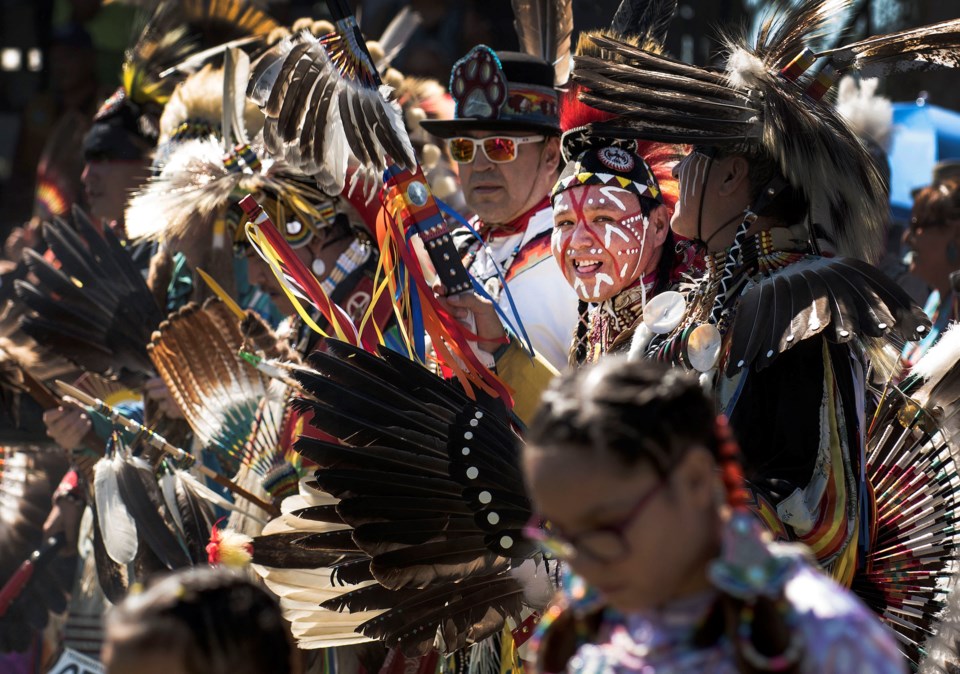When Maureen Callihoo Ligtvoet heard the prime minister promise a new era for Indigenous rights in Canada this week, she says she felt a little bit of hope.
Prime Minister Justin Trudeau said in the House of Commons Wednesday that his government would implement a legal framework for the recognition and implementation of Indigenous rights in Canada before the next federal election.
Those were words Ligtvoet said she and her family thought they’d never hear. Her band, the Michel First Nation, has been fighting the federal government for legal recognition for 30 years, and her family had endured decades of injustices from residential schools, the Sixties Scoop, and Indian hospitals.
“To have the prime minister voice that he’s looking for change and collaboration and partnership, I appreciate (that),” she said.
“I’m hopeful that it’s not just words.”
Indigenous people have for decades had to fight costly court battles to get their rights recognized despite the fact that those rights are embedded in Canada’s Constitution, Trudeau told the house.
He also said he had recently spoken with the family of Colten Boushie – the Indigenous man who died after being shot by farmer Gerald Stanley. Stanley’s trial and acquittal this month triggered widespread criticism of the justice system, as several visibly Indigenous people had been excluded from the jury without cause.
“We have a responsibility to do better, to be better, and to do our best to make sure that no family has to has to endure what they went through,” Trudeau said.
Trudeau said the Minister of Crown-Indigenous Relations and Northern Affairs and the Minister of Justice would now embark on nation-wide talks to create a legal framework that would have the recognition of rights guide all government interactions with Indigenous peoples.
This framework would lead to changes to how juries are selected, full and meaningful implementation of treaties, and new tools to support the reconstruction of Indigenous communities. Trudeau said the government would have a draft ready later this year and the framework implemented by October 2019.
“Mr. Speaker, we cannot erase the past ... What we can do, what we must do, is commit to being better, to doing better.”
Hope and skepticism
Trudeau has made an ambitious proposal, said University of Alberta native studies professor James Dempsey. But given that we’ve had decades of studies and royal commissions on Indigenous rights in Canada with little to show from them, many people are taking a “we’ll believe it when we see it” attitude to it.Dempsey noted that Trudeau has promised to implement all 94 recommendations of the Truth and Reconciliation Commission, for example.
“I don’t have a checklist, but I don’t think very many of them have been done.”
This framework could also get tossed out the window like the Kelowna Accord if the Liberals lose the next election, Dempsey added.
Donald Langford of the Métis Child and Family Services Society in Edmonton said he didn’t expect much from this latest proposal, given the government’s track record.
“Instead of meeting and talking about it, they need to sit down and start working.”
Dempsey said a meaningful framework would have to redefine federal-Indigenous relations as a partnership rather than the patron-client setup there is now and trigger wholesale change at Indigenous and Northern Affairs Canada.
A framework that emphasized collaboration, respect, and self-governance for Indigenous peoples would be a great help to the Michel First Nation, Ligtvoet said. But given that to be Indigenous today is to be, as her daughter puts it, “unsafe,” she can’t help but be skeptical of Trudeau’s words.
“I’m hopeful that the word ‘unsafe’ is a word of the past and that we really can start to work together,” Ligtvoet said.
Residents are asked to email [email protected] to take part in the framework consultation.



